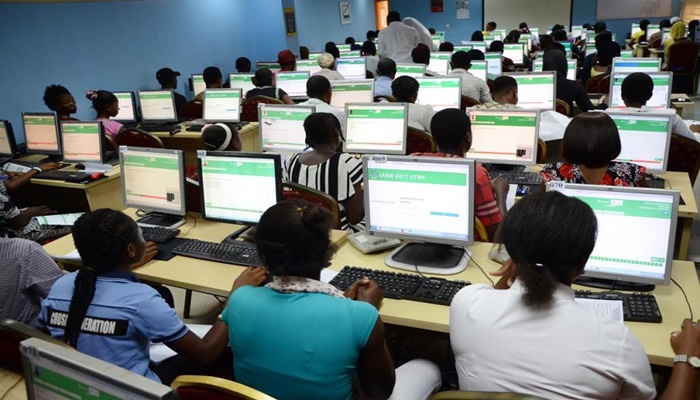
The Joint Admissions and Matriculation Board (JAMB) has released the results of 84,000 candidates, who sat for the supplementary Mock-Unified Tertiary Matriculation Examination (Mock-UTME).
The exercise was conducted on Tuesday, in 387 Computer-Based Test (CBT) centres across the country.
The JAMB Registrar, Prof. Oloyede, on Tuesday, said the glitches earlier observed in some centres during the mock-UTME held on March 30, prompted it to reschedule the exercise.
However, the Board, in a statement issued on Wednesday, by its Spokesperson, Fabian Benjamin, who announced the results of the test, said the exercise was successful.
The statement read in part: “With the successful conduct of the mock examination, it became crystal clear that all the challenges encountered, which had led to the rescheduled mock examination, were necessary experiences that would serve to make the system even better as the Board has now consolidated the software and is ready to give Nigerians the best.
“Consequently, the results of the examination have since been released by the Board.
“However, the Board would like to stress that the prompt release of results for the mock examination would not be replicated during the upcoming Unified Tertiary Matriculation Examination (UTME) scheduled to commence from 25th April, 2023.
“As such, the Board stated that for the main UTME, the results would not be released piecemeal but holistically as the entire results of the entire eight-day exercise would be collated before they would be released to candidates.
“It is to be noted that the Board embarked on the screening of results to ensure that any UTME results obtained by any candidate are not a product of infractions and other unwholesome practices. This measure ensures that the Board would not have to release any particular result and then recall same on account of established cases of malpractice.
“In the same vein, assessing the entire results enables the Board to obtain the overall standard deviation and the mean of the performance of all the candidates, who sat the examination.
“By doing this, the Board is able to aggregate the general performance of all candidates, who sat the examination and factor same into the national education planning template.
“From the foregoing, it is clear that the Board would not shy away from taking much-needed steps aimed at transforming the conduct of public examinations in Nigeria.”






